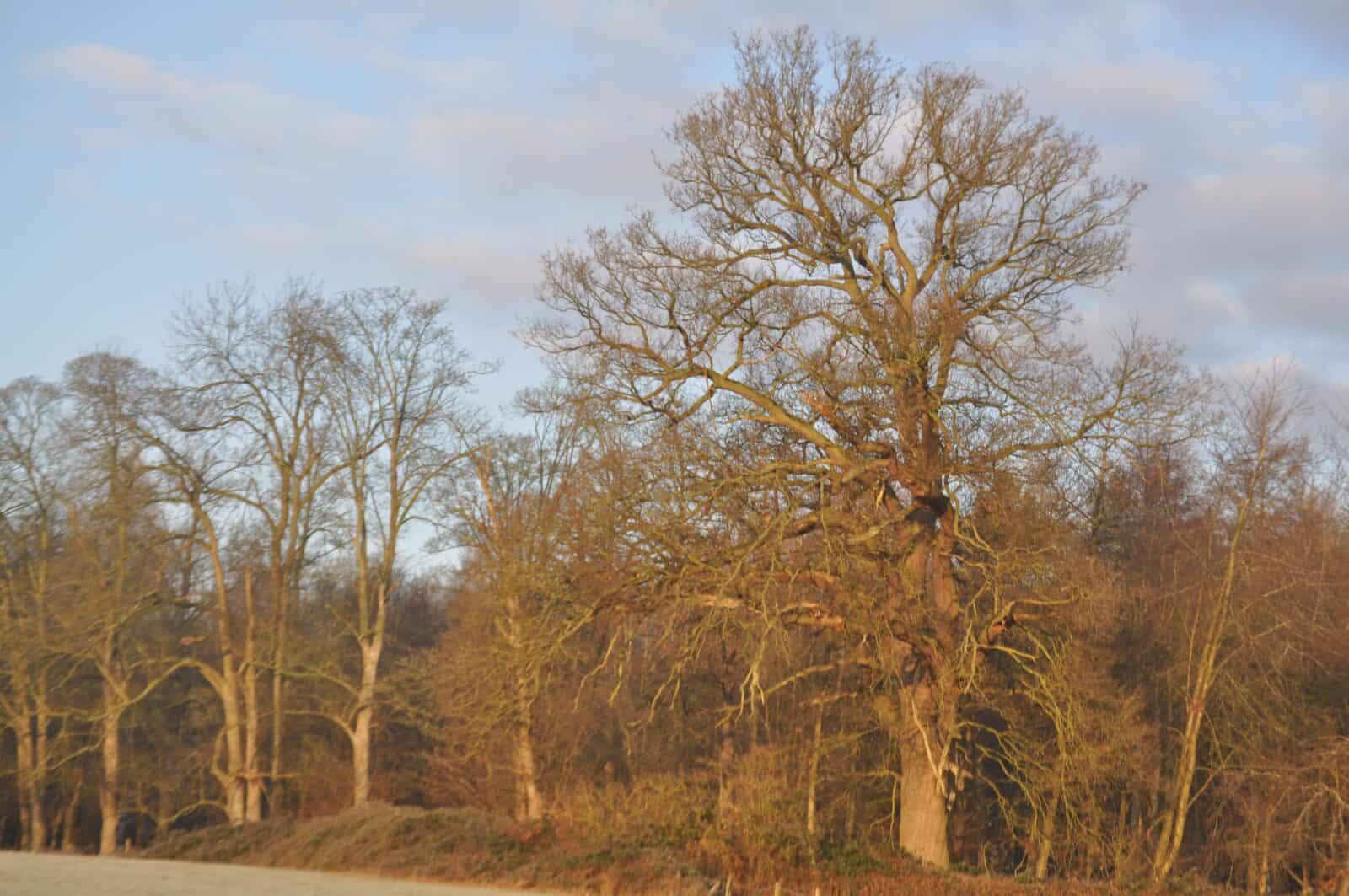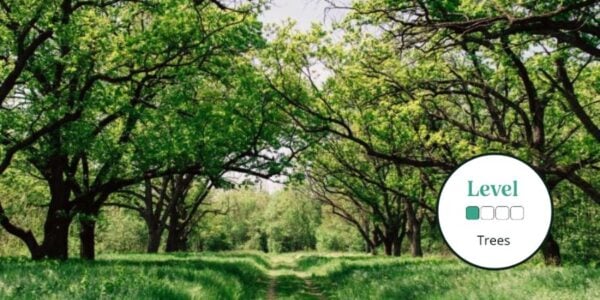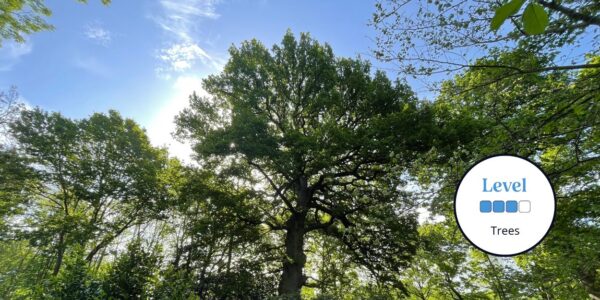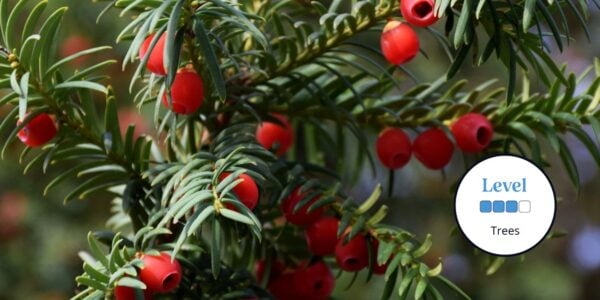This beginner course will equip you with the skills you need to start identifying broadleaf tree species in the winter. Identifying broadleaf trees when they lose their leaves can be a challenge, but this course will give you all the tips and tricks you need to allow you to confidently recognise some common broadleaf species.
This course will include:
- Understanding the basic winter biology and ecology of broadleaf trees.
- Learning the different characteristics of common broadleaf tree species that will allow you to identify them in the winter.
- Practical experience identifying some of the most common broadleaf tree species in the winter with an expert tutor.
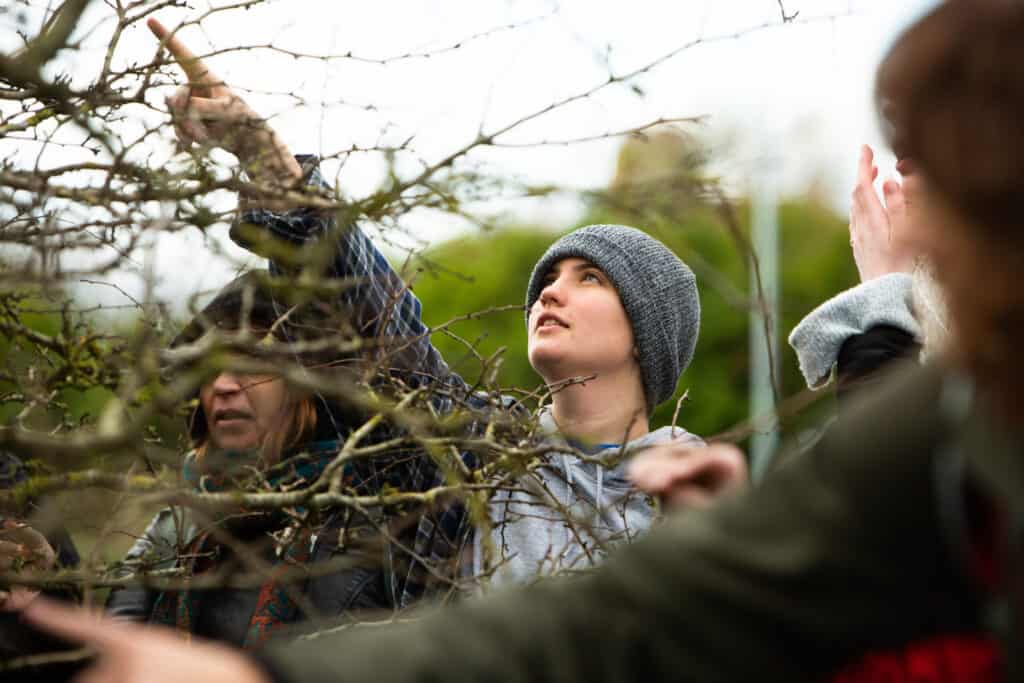
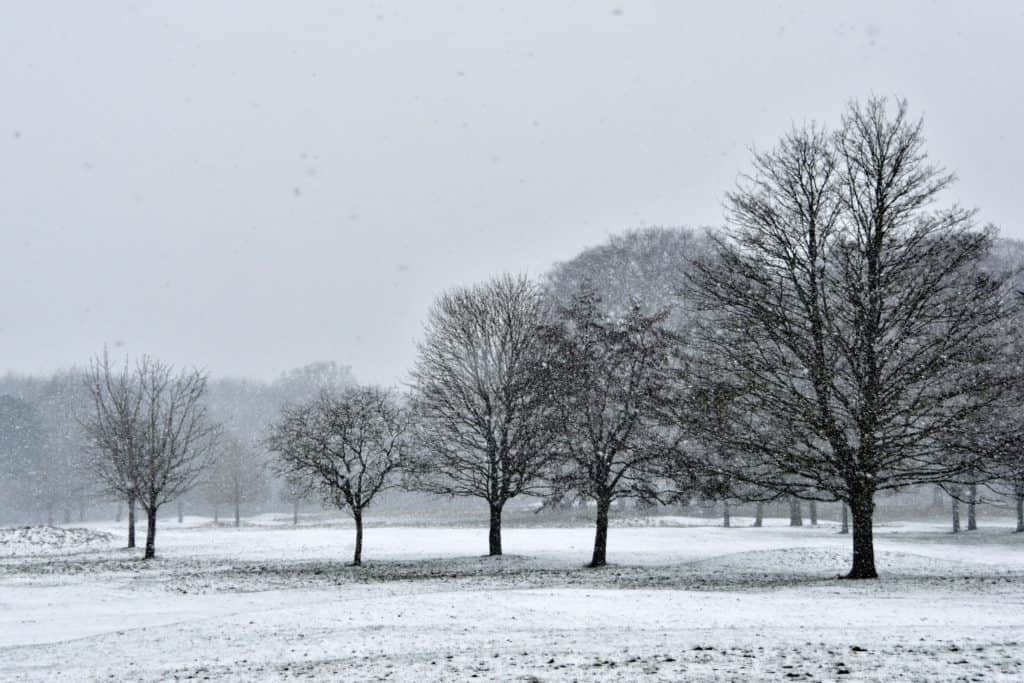
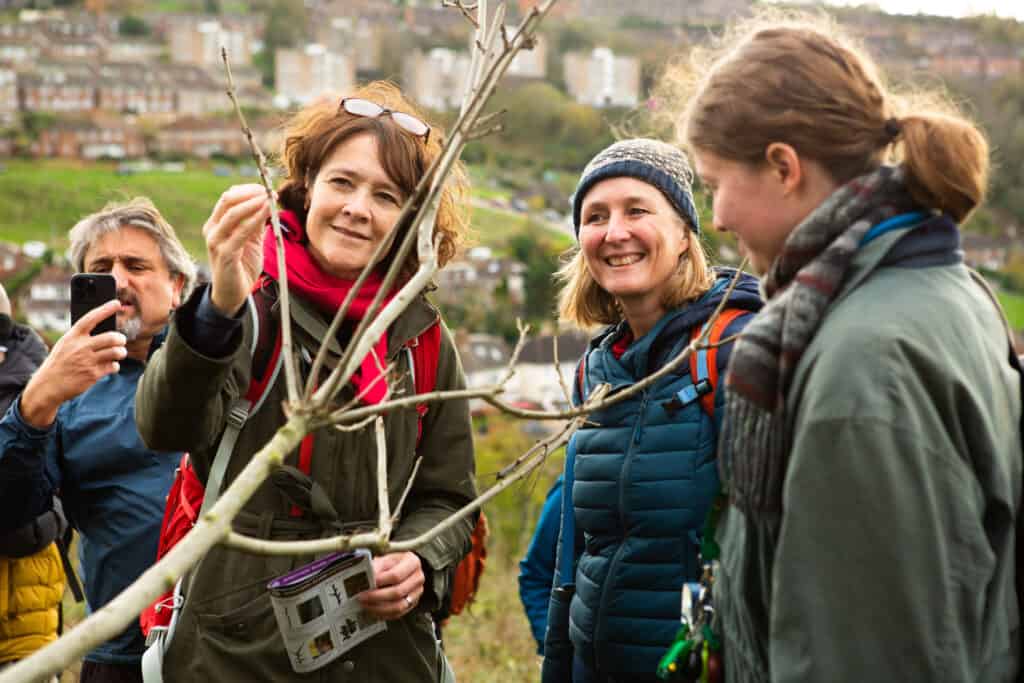
Read More
This beginner course will start by looking at the changes deciduous trees undertake in winter and the key features to use in winter identification. You will then look at common species you are likely to encounter and break each down into key features, sharing top tips for winter identification. Some of the more challenging common species to identify are also covered.
By the end of the course, you will be able to:
- Understand the biology of winter broadleaf trees, including why they lose their leaves and how they survive through to spring.
- Identify a range of common broadleaf trees in winter
- Become familiar with the more commonly found species in your area
- Use buds and twigs as well as other key characteristics to make an accurate identification
Who Should Attend? – Nature enthusiasts, students, rangers, early career consultants and ecologists.
Knowledge Level – Beginner. Level descriptors can be found on the following web-page: Framework and Course Level Descriptors
Prior Knowledge – No existing knowledge or experience is needed for this course, just a willingness to explore and learn. Some existing knowledge of trees in the summer would be useful, but not essential.
PLEASE NOTE: There is no accommodation or meal facilities provided with this course. Refreshments (tea and coffee) will be available. If we are unable to reach viable numbers for this course, we will inform you of the course cancellation 4-5 weeks prior to the course run. We would recommend when purchasing accommodation and/or travel you should take out your own insurance.
Bookings will close if course capacity is reached.
Please email [email protected] if you have any questions.
About the Tutor
Morag Boyd
Morag Boyd is a countryside professional with 30 years experience working in a range of countryside and conservation professions. In a varied career, she has worked in a variety of roles including countryside ranger in various locations, lecturer in countryside management for Elmwood College in Fife, conservation shepherd for the Scottish Wildlife Trust and now she combines a contract with Scottish Badgers, recruiting and training volunteers for the national Get Sett Scottish Badger Survey with freelance work training teachers to take learning outdoors for Learning Through Landscapes. She also runs her own outdoor nature education business, working with schools and community groups to get children outdoors and learning about nature.
Morag has a broad knowledge of many different aspects of ecology and conservation, with particular interests in badgers, of course, trees and woodland management and botany.
Biliana Deneva
Biliana Deneva has a Masters degree in biology and specialises in botany. She is passionate about everything and anything related to plants. She has experience as a secondary school biology teacher. She hopes to encourage her audience to become more involved with, curious about, and caring for all living organisms on our planet.
Diego Sánchez-Ganfornina
Diego Sánchez-Ganfornina is a botanist and educator with interests in bryology and plant ecology, living and working in Edinburgh. With a passion for nature since an early age, Diego’s knowledge and experience has developed in different countries and habitats. He has participated in a variety of research and education projects over the years and is now informing conservation priorities in arid rangelands in Saudi Arabia; researching several Australasian moss taxa, plus developing and delivering educational activities at the Royal Botanic Garden Edinburgh. All projects Diego participates in have a common theme: that of having an immediate impact on the climate crisis, be it through conservation, ecological restoration, education or the raising of public awareness.
Calum Urquhart
Calum Urquhart is a field ecologist and wildlife guide with a lifelong interest in natural history spanning plants, bryophytes, birds, mammals, and many invertebrate groups; he delights in sharing these passions with others. He is also particularly interested in the wildlife and ecological restoration of upland and mountainous areas.
Mark Buxton-Kelly
Mark has a long history of working within a natural setting on behalf of conservation and training organisations. He leads walks and talks on folklore, foraging and more, all with connection to the natural world.
Example Timetable
Timings for this course may vary, so please check the start and end times of the different course runs at the bottom of the page. Please arrive in time for the course to start promptly.
This course will involve both classroom learning and field excursions to cover all of the learning objectives.
Lunch is not included so please bring your own food. Refreshments (tea and coffee) will be provided.
What's Included
The course has been carefully created by expert tutors and educators to help you build your knowledge and apply it within the field surrounded by like-minded individuals.
The course includes:
- Classroom learning covering the theory of the topic
- Field excursions to apply new knowledge
- Expert tuition for which the Field Studies Council is renowned
- Clear objectives and progression
- Refreshments (tea/coffee)
You can rest assured that the absolute best content from an expert in environmental education will be provided. In choosing a Field Studies Council course, you will be joining thousands of people who learn with us each year.
Bursaries and Subsidies
Student Discount
This course is eligible for a student discount. If you are a current student, please use discount code BioStudent20 at checkout for 20% off all Biodiversity courses.
Natural History Bursaries
There are a number of natural history bursaries available to help with the cost of your course. To find out if you and your chosen course are eligible, read more here.
Before You Attend
What to Bring
- Notebook and pencil
- Lunch and refreshments
- Sensible footwear and clothing for being outdoors
- Small bag to carry personal items
Recommended Literature
When you book this course, you will receive a discount code for the Field Studies Council recommended guides below.
There will be a member of staff with first aid training and access to a first aid kit on site. If you have special medical or access requirements, please let us know as soon as possible so we can plan the course.
Opportunities to attend this course
-
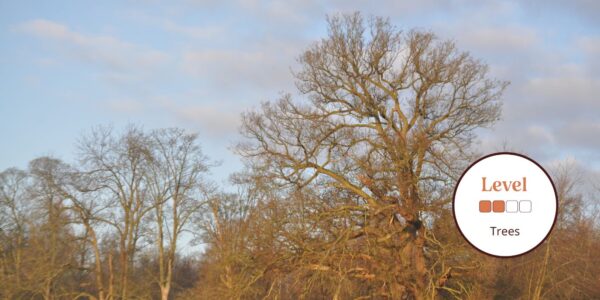
Sat 02, November 2024 10:00 - 16:30
Further information on The Falkland Estate can be found here. Please note: course times are 10am - 4:30pm, with a 30 minute lunch break. The venue is unable to offer accommodation with this course, please book local accommodation if you require overnight stays and ensure you take out the appropriate insurance.
-

Sun 17, November 2024 10:00 - 17:00
Please note: you will need your own transport for the field site visit on this course to Craigellachie Nature Reserve. Further information and directions can be found here. Refreshments and food are not provided on this course, please ensure you bring all drinks and food for the course with you, as there are no ad-hoc purchase facilities at the venue. Further information on Glenmore Lodge can be found here. Accommodation is available at Glenmore Lodge, please contact Glenmore Lodge directly for further information. If you require overnight stays, please ensure you take out the appropriate insurance.
-

Sun 17, November 2024 10:00 - 16:00
Please note: course times are 10am - 4pm. There is no provision of refreshments on the course, please ensure you bring refreshments and a packed lunch. Directions and further information on National Trust - Quarry Bank can be found here. For car parking, use postcode SK9 4HP. The venue is unable to offer accommodation with this course, please book local accommodation if you require overnight stays and ensure you take out the appropriate insurance.
-

Fri 29, November 2024 10:00 - 17:00
The venue is unable to offer accommodation with this course, please book local accommodation if you require overnight stays and ensure you take out the appropriate insurance.
-

Sat 07, December 2024 10:00 - 17:00
The venue is unable to offer accommodation with this course, please book local accommodation if you require overnight stays and ensure you take out the appropriate insurance.
No current dates for this course? Click here to view all the upcoming Natural History courses.
Progress Your Learning
This is a training course from the Field Studies Council, delivered by expert tutors with an approachable learning style. After attending this course, you may like to progress your learning with further relevant courses or branch out into other areas of natural history. The Field Studies Council offers both online and in-person courses, so you can choose the learning style that suits you best.
The course gives you the opportunity to immerse yourself in a new subject and acquire novel skills. Our online portal gives you time to study at your own pace and fit the lessons around your own schedule.
If you have any questions about our courses, please check out our Frequently Asked Questions or email [email protected].
Group Bookings Made Easy
If you have a group of 10 or more individuals wanting to complete one of our courses, our team are available to discuss your options – from discounts to private team courses. Find out more!
You can rest assured that the absolute best content from an expert in environmental education will be at your fingertips. In choosing a Field Studies Council course, you will be joining thousands of people who learn with us each year.

